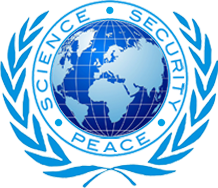Posttraumatic Growth among Participants in Combat Activity:
The Modern State and Perspectives
Vasyl Illich Os’odlo, D.Sc.
Abstract
In recent years, in international psychological research, there has been a rapid change in paradigms concerning psychological trauma. More and more research is appearing in which not only the destructive side of psychotrauma is noted but also the positive or adaptive changes of personality are empirically confirmed as a result of a traumatic event experience.
To date, the positive effects of traumatic experience have been reflected in the concept of posttraumatic growth. Scientists define posttraumatic growth as “the experience of positive change as a result of the struggle with a significant life crisis.” These positive changes are manifested both in the emotional and the cognitive fields.
Since the first half of the 1990s, a large number of studies have been presented in the scientific literature on the manifestations of posttraumatic growth among military personnel in combat activities. Empirical data indicates posttraumatic growth among veterans of World War II, the Vietnam War, the Korean War, the Persian Gulf War, and the military conflicts in Iraq and Afghanistan.
Despite the considerable number of these research studies on military men, researchers still note that in many aspects the nature and determinants of postraumatic growth remain insufficiently clear and understandable. In particular, one of the most problematic aspects remains the question of the relationship between the intensity of combat experience and posttraumatic growth. The relationship between the manifestations of posttraumatic stress disorder and the manifestations of posttraumatic growth in veterans of combat operations is not fully understood. There are certain differences in the scientific views on the psychological determinants of posttraumatic growth.
In summary, the issues of posttraumatic growth are now actively studied and discussed in the international scientific literature and are represented in the research work of both American and Israeli military psychologists. However, despite this active development abroad, the posttraumatic growth of participants in combat activity, as a subject of scientific work, is completely absent in Ukrainian psychological research. This phenomenon among participants in the anti-terrorist operation has not been disclosed yet.
In our view, the sociopolitical circumstances and the colossal demands of modern military realities make it more urgent for a broader consideration of this phenomenon, both theoretically and empirically.

